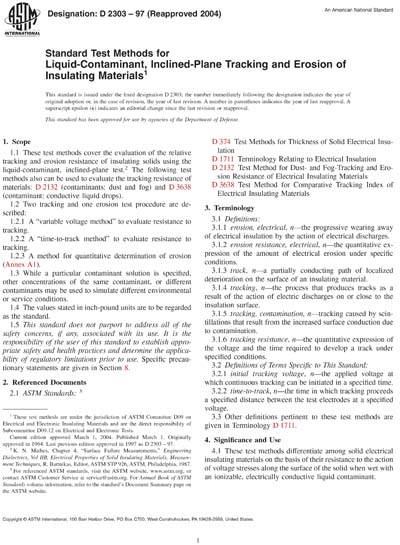Historical
ASTM D2303-97(2004)
Standard Test Methods for Liquid-Contaminant, Inclined-Plane Tracking and Erosion of Insulating Materials
1.1 These test methods cover the evaluation of the relative tracking and erosion resistance of insulating solids using the liquid-contaminant, inclined-plane test. The following test methods also can be used to evaluate the tracking resistance of materials: D 2132 (contaminants: dust and fog) and D 3638 (contaminant: conductive liquid drops).
1.2 Two tracking and one erosion test procedure are described:
1.2.1 A "variable voltage method" to evaluate resistance to tracking.
1.2.2 A "time-to-track method" to evaluate resistance to tracking.
1.2.3 A method for quantitative determination of erosion ().
1.3 While a particular contaminant solution is specified, other concentrations of the same contaminant, or different contaminants may be used to simulate different environmental or service conditions.
1.4 The values stated in inch-pound units are to be regarded as the standard.
1.5 This standard does not purport to address all of the safety concerns, if any, associated with its use. It is the responsibility of the user of this standard to establish appropriate safety and health practices and determine the applicability of regulatory limitations prior to use.
ASTM International [astm]

